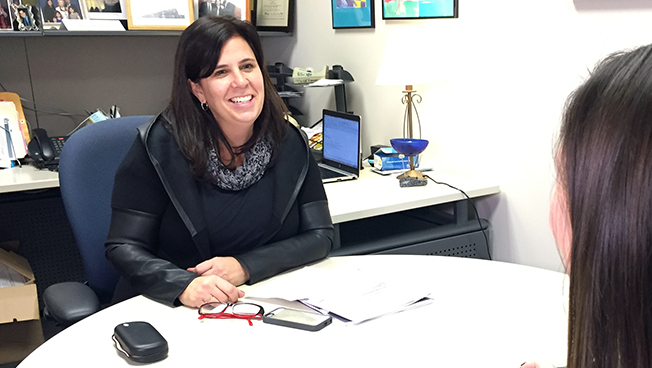“We are committed to upholding our status as a leader in corporate responsibility and sustainability because our employees and customers expect that of us,” says Laura Bishop, Best Buy’s vice president of Public Affairs & Sustainability.
While the holiday shopping season is in full-swing here in the U.S., there’s another crowd gathering in Paris for the global conference on climate change, also referred to as COP21. Best Buy’s Laura Bishop, vice president of Public Affairs & Sustainability, is there to represent our company’s sustainability efforts.
The United Nations conference on climate change brings together business, nonprofit and government leaders from around the world to collectively agree to reduce the carbon emissions that are warming our planet and creating economic risks. The effort aims to establish an international agreement that sets the stage for averting the impacts of climate change like wildfires, hurricanes, rising sea levels, along with the resulting economic impacts.
I spent time with Laura to learn more about this historic gathering and what it means for our company and our customers.
Q: Why is it important for Best Buy to be at COP21?
A: By being in Paris, we are actively supporting positive results from these international climate negotiations. Best Buy has been recognized as an industry leader after recently signing on to the American Business Act on Climate Change with the White House and 80 other companies, as well as setting an aggressive, science-based carbon-reduction goal.
We are committed to upholding our status as a leader in corporate responsibility and sustainability because our employees and customers expect that of us. Also, it’s the right thing for our business. We offer a variety of energy-efficient products to help our customers live more sustainably. Reducing carbon in our operations also saves our company money – our current efforts have saved more than $50 million.
Q: What do you hope to achieve?
A: It’s important that we continue to deepen our relationships with government officials and business leaders so we have a voice in shaping the climate change policies that will help our company and our customers move to a low-carbon economy. Best Buy is a recognized leader in carbon reduction, and we set a goal to reduce our carbon emissions by 45 percent by 2020. What I’m learning will also help us lessen risks and identify opportunities for even more efficiency in our business.
Q: Where do you see the impact of climate change on Best Buy’s business?
A: Transitioning to a low-carbon economy is important to our business and the planet. The extreme weather that results from climate change disrupts our store operations and supply chain. Last year alone, 670 Best Buy stores (more than half of our U.S. locations) experienced weather extremes that led to temporary closure and disrupted our employees’ and customers’ lives. In 2011, a devastating flood in Thailand significantly affected the global supply of hard drives.
Q: Do you think customers are concerned about carbon?
A: Our customers care about ways to reduce their energy costs. We see it in the high volume of ENERGY STAR products we sell and in the growing popularity of connected home solutions, such as smart thermostats and solar systems. People realize that they can save money and mitigate climate change, too.
Follow Laura’s COP21 experience on Twitter: @BestBuyCSR. Visit the Best Buy website to learn more about our sustainability efforts.


